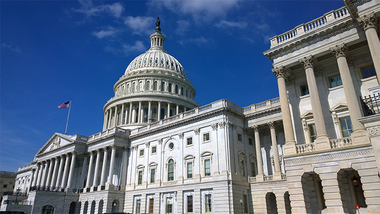Were you concerned that Congress was not going to raise the debt limit? Well, you can relax now that we know the government will not default on its debts.
Since 1960, Congress has acted 78 separate times to raise, extend or revise the government’s debt limit. Once again, the looming debt limit issue was resolved, when Congress agreed to raise the debt ceiling in the Fiscal Responsibility Act of 2023, which was signed into law on June 3, 2023. We can all breathe easier now that the United States can continue to pay its debts, at least until January 2025, when the debt limit suspension expires.

What is in the act
- With two exceptions, the act sets caps on government spending for the next two years:
(1) Military spending is increased by about 3% in 2024. In addition, the act includes funding to improve medical care for military veterans, including a $20.3 billion fund for veterans who have been exposed to toxic substances or environmental hazards.
(2) Nondefense spending levels (i.e., those related to most domestic spending) remain flat next year and can be raised by 1% in 2025.
- The act contains new work requirements for able-bodied, low-income Americans who receive food assistance under the Supplemental Nutrition Assistance Program. This provision contains certain exceptions for homeless people and veterans.
- The formula used by states to calculate cash assistance for low-income households under the Temporary Assistance for Needy Families program was modified.
- With certain exceptions for veterans’ medical care, housing assistance and the Indian Health Service, approximately $30 billion in unspent COVID-19 relief funds was taken back, including $400 million from the Centers for Disease Control and Prevention’s Global Health Fund.
- The COVID-19 freeze on student loan payments is ending. Student loan interest will resume starting on Sept. 1, 2023, and payments will be due starting in October. Loan service providers are to notify borrowers before payments restart.
- New measures to get energy projects approved more quickly were included in the act. These measures include the creation of a lead agency to oversee reviews and require that the reviews are completed in one to two years.
- $10 billion of the $80 billion allocated to the IRS in the Inflation Reduction Act has been reprogrammed in the 2024 and 2025 fiscal years in order to maintain funding for some nondefense discretionary programs.
What is NOT in the act
- Changes to Social Security or Medicare.
- New taxes on corporations or wealthy individuals.
- Steps to reduce Medicare spending on prescription drugs.
- Changes to the Inflation Reduction Act’s clean energy and climate provisions.
This is just an overview of a complex series of provisions, some of which will continue to change. LMC will keep you informed on how you might be affected, as the Fiscal Responsibility Act of 2023 continues to evolve.



